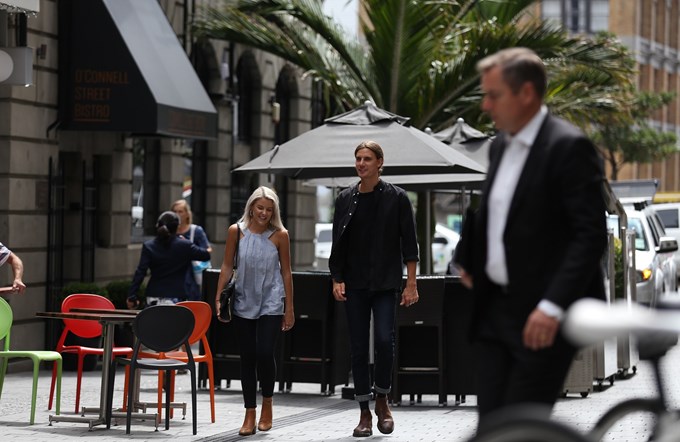Dr Michael Hale is a Medical Officer of Health at Auckland Regional Public Health Service working to improve health by promoting physical activity.
He tells us why the public health service wants to improve road safety:
What is your organisation doing to make streets safer?
Auckland Regional Public Health Service has written a submission supporting the proposed bylaw about reducing speed limits around Auckland because the evidence in other cities shows slowing traffic significantly reduces rates of deaths and serious injuries.
We are working with our partners in Healthy Auckland Together to help Aucklanders be more physically active – and having streets with safe and appropriate speed limits is a key way of achieving this.
In 2017, 64 people died on our roads. Why is working towards a Vision Zero goal important for your organisation?
Changing roading and speed limits with the aim of zero road deaths puts Aucklanders’ lives ahead of a few extra minutes’ travel time. It will mean less pollution, more physically active people and reduced health costs.
What does it mean for you personally?
Lowering speeds in town centres and near schools will help protect children from death and serious injury. I want to live in a city where it is safe for children to walk, cycle and scoot around – safe to be active and explore.
A lower speed limit may increase journey times by only seconds, but this may mean a lifetime for a child.

Why are slower speeds important for your communities?
If we can make it easy and safe for people to get out of their cars and walk locally, this is proven to improve people’s physical and mental health and wellbeing.
What are the benefits of improving road safety for your area?
It’s about creating a safe and attractive community for people to live in and get around. I want to see those ‘black spots’ on our roads eliminated – and lowering speeds is a critical way to reducing crashes, injuries and deaths from our streets.
Why are you encouraging people to make a submission on AT’s speed limit bylaw?
This is our opportunity to address our high road toll – higher than other cities. Many communities experience cars speeding through their streets and they now have a chance to make it safer for their children and themselves.
Have Your Say
There's still time to have your say on the proposed speed limit bylaw.
Submissions close on Sunday 31 March.
Visit the OurAuckland story for more information.
About Dr Michael Hale
Michael is a public health physician and Medical Officer of Health at Auckland Regional Public Health Service where he is the clinical lead for nutrition, physical activity promotion, healthy urban form and pertussis. His professional focus is on creating supportive environments for people to be physically active – through cycle networks, green spaces, building design and mixed land use zoning.
He is speaking as part of a panel discussion on the Speed Limit Bylaw at Auckland City Hospital on Friday 15 March.


